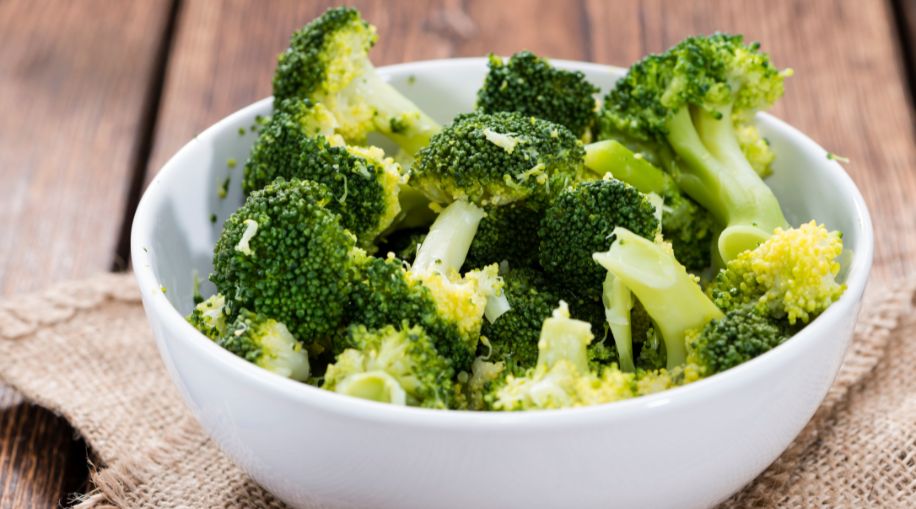Nourishing Your Hormones: Why Diet Plays a Star Role
When you’re on birth control, your body adapts to synthetic hormones that prevent pregnancy. While these hormones do their job, they can sometimes lead to side effects like mood swings, bloating or fatigue. The good news? What you eat can help soften these bumps in the road. Nutrient-packed foods supply vitamins, minerals and healthy fats that support liver detoxification, balance blood sugar and keep your natural hormone production humming along. Keep reading to learn more about foods to help hormonal health while on birth control.
1. Leafy Greens: Powerhouse of Nutrient Support
Pile your plate high with spinach, kale and Swiss chard. These leafy greens are rich in magnesium, calcium and B vitamins—key players in stress reduction and mood regulation. Magnesium helps soothe cramps and promotes relaxation, while B vitamins assist liver enzymes in processing excess hormones. Plus, their fiber content binds with any extra estrogen, escorting it out of your system and maintaining hormonal harmony.
2. Omega-3 Rich Fish: Calming the Hormonal Storm
Salmon, mackerel and sardines aren’t just delicious, they’re loaded with omega-3 fatty acids, the heart-healthy fats that also support hormone balance. Omega-3s help regulate inflammatory pathways that can be aggravated by synthetic hormones, reducing breast tenderness and joint pain. They also encourage healthy cell membranes, improving hormone receptor function so your body can better respond to both natural and synthetic hormones.
3. Cruciferous Vegetables: Nature’s Detoxifiers
Broccoli, cauliflower, Brussels sprouts and cabbage belong to the cruciferous family, and they boast a compound called indole-3-carbinol (I3C). Inside your body, I3C converts to DIM (diindolylmethane), a potent supporter of estrogen metabolism. By encouraging the breakdown of stronger estrogen metabolites into milder forms, these veggies help maintain an even hormonal landscape and may alleviate bloating or breast discomfort linked to hormonal fluctuations.
4. Seeds and Nuts: Tiny, Mighty Hormone Helpers
Flaxseeds, chia seeds and walnuts are mini powerhouses of lignans and healthy fats. Lignans are plant compounds that bind excess estrogen and escort it out of the body, promoting balance. Meanwhile, nuts and seeds provide protein and essential fatty acids that stabilize blood sugar—key to preventing sudden energy dips and keeping irritability in check. Aim for a tablespoon of seeds or a small handful of nuts daily, added to yogurt, smoothies or salads.
5. Bright Berries: Antioxidant Allies
Strawberries, blueberries and raspberries are bursting with antioxidants like vitamin C and anthocyanins. These compounds combat oxidative stress brought on by hormone processing and support adrenal health, reducing feelings of fatigue. The natural sweetness of berries also makes them a satisfying treat that doesn’t spike blood sugar, helping you manage cravings and maintain a steady mood.
6. Spices and Herbs: Turmeric’s Golden Boost
Turmeric’s active ingredient, curcumin, is celebrated for its anti-inflammatory properties. By calming inflammation, curcumin helps ease the aches or cramps that can accompany birth control use. Additionally, herbs like basil and oregano contain phytonutrients that support liver health, ensuring efficient breakdown and clearance of synthetic hormones. Sprinkle turmeric into soups, teas or grain bowls for a flavorful hormone-supportive kick.
7. Whole Grains: Steadying Your Blood Sugar
Quinoa, brown rice and oats are complex carbohydrates that digest slowly, keeping blood sugar levels steady. Stable blood sugar prevents insulin spikes that can disrupt hormone balance and trigger cravings. Whole grains also provide B vitamins, fiber and minerals that nourish both your digestive system and endocrine functions. Try overnight oats for a quick breakfast or swap refined bread for whole-grain varieties at lunch.
Living Well with an IUD: Lifestyle Tips for Extra Support
- Hydrate generously. Water aids liver detoxification and helps relieve bloating sometimes associated with IUDs.
- Prioritize sleep. Aim for 7–9 hours nightly to regulate cortisol and support overall hormonal health.
- Move your body. Gentle exercise—walking, yoga, swimming—can reduce cramps, improve circulation and boost mood.
- Manage stress. Deep breathing, meditation or journaling help keep cortisol in check, preventing it from disrupting your estrogen and progesterone balance.
- Track your cycle. Even with an IUD, note any changes in bleeding patterns or discomfort and discuss them with your healthcare provider.
- Mind your IUD maintenance. Check for the IUD strings monthly to ensure correct placement, and stay on schedule with routine gynecological exams.
- Support gut health. Probiotic-rich foods like yogurt, kefir and fermented veggies can ease digestive discomfort and aid hormone metabolism.
Eating these nutrient-rich foods to help hormonal health while on birth control will give your body a powerful toolkit to navigate the hormonal shifts that come with this kind of medication. Whether you’re snacking on berries, seasoning meals with turmeric or sipping a green smoothie, each choice is a step toward feeling more balanced, energized and in tune with your body’s unique rhythm.
